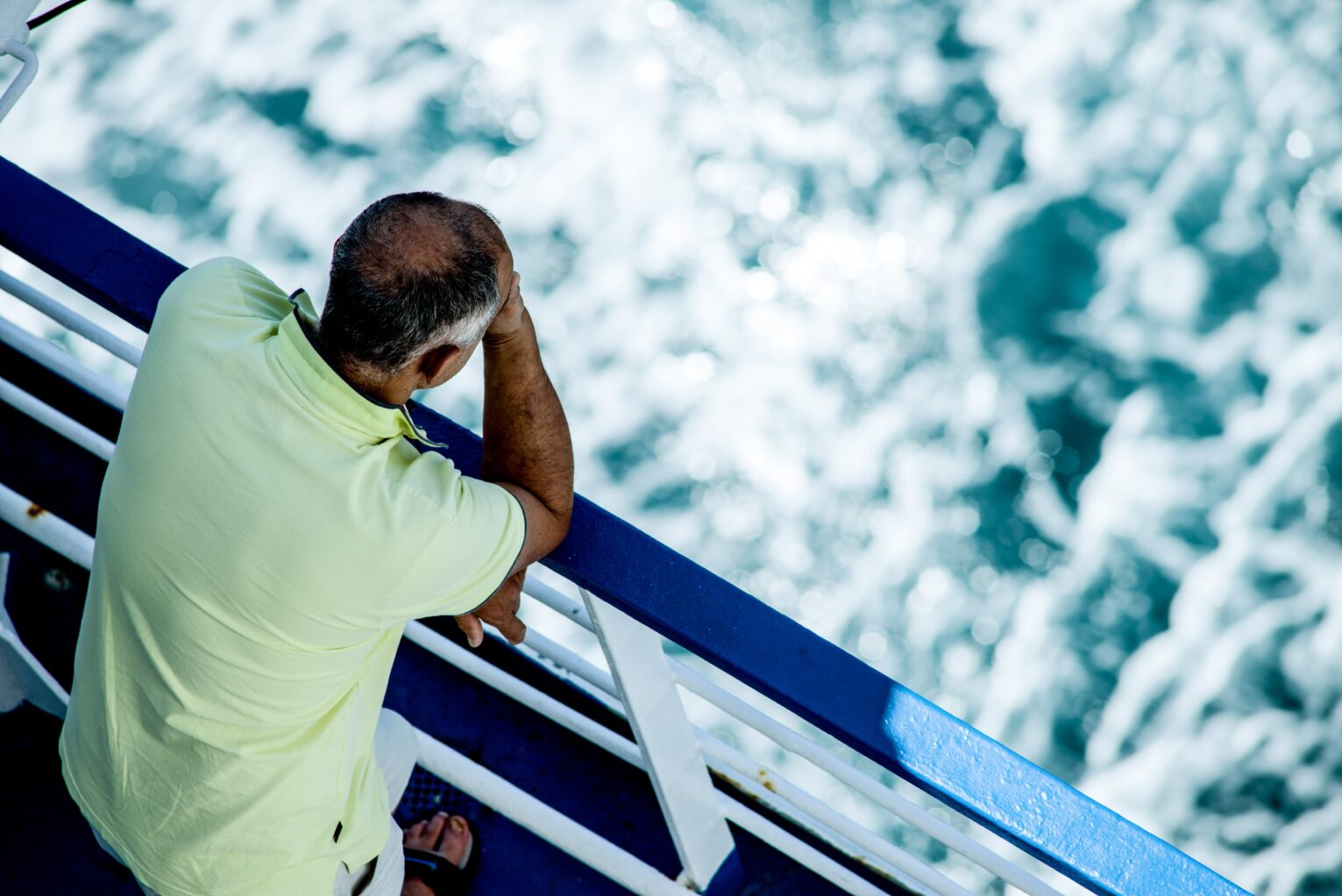10 Cruise Scams to Watch Out For

Table of Contents
Cruise lines in the past have warned both their clients and travel agents about scams circulating online and onshore.
Azamara, the small ship boutique cruise line previously had sent out a warning to its network of travel advisors to let them know that they’ve seen a rise in scammers pretending to be part of their cruise line, in order to try and convince people to send them money.
The cruise line wrote: “We have recently become aware of a scammer impersonating Azamara Cruises to collect personal or financial information by posing as our customer service or sales agents.
“These individuals are not affiliated with Azamara Cruises in any way and are using deceptive tactics to mislead guests.
“They may request payment for ‘missing fees,’ offer fake refunds, or claim urgent travel alerts.
“Calls may appear to come from toll-free numbers similar to ours.”
But this is not the first time passengers have been scammed.
Scams are common across the entire travel industries, and often target cruisers to a slightly older demographic, the large deposits needed for a cruise and the possibility to manipulate the trustfulness of well known cruise brands, by impersonating them.
A key tip, which Azamara emphasised, is to avoid posting public details of your cruise. For example, sharing your boarding pass, stateroom number or any other identifying information about your cruise can make you more likely to be targeted and more vulnerable to scams like these.
If you are called by someone claiming to be from the cruise line, don’t immediately share all the information of you’re booking. If they’re calling you, they should be able to give identifying information such as your reservation number, the names of your travel party, what type of cabin you have and so on.
If you want to share news about your cruise to friends or family, it’s best to tweak your settings so that only people you know can see the post, rather than it being publicly available.
Also not long ago, popular Carnival Cruise ambassador John Heald took to Facebook to warn cruisers about fake websites that trick people into buying visas.
He even mentioned that these websites had particularly targeted Carnival Cruisers and were charging people USD$400 for fake UK visas.
However, not all scams happen online, scamming can happen both online and in-person. Whether it’s an overly intense salesperson or an all-too-friendly mysterious Facebook profile, there’s plenty to be aware of to make sure you aren’t suddenly parting with your money.
Below is a list of 10 cruise scams to watch out for on ships, some likely as old as cruising itself, and others that have newly emerged as scammers frustratingly search for new ways to trick travellers.
The shore excursion switch up
When arriving in port you’ll often encounter a range of tourist operators offering you last minute shore excursions, generally exceptionally cheaper than is offered by the cruise line. However, to take one of these vendors up on their offer would be to take a huge risk.
While you’re unlikely to end up kidnapped or robbed, it’s more common for your promise of a ‘local experience’ to involve a day of being sold products, as these operators often work on commission. Furthermore, you may feel under duress to buy something as you are relying on the tourism operator to return you to port in time for your cruise.
In this age of travel, even if you don’t wish to book your shore excursions through the cruise line, it shouldn’t be overly difficult to find a range of tour operators with TripAdvisor or Google Reviews that can help you feel assured in the experience you’ll have.
The ‘free cruise’ scam
Unfortunately, if you’re being offered a free cruise, the majority of the time, it’s not going to be legitimate. Of course, if you have reason to believe it’s real, for example, if you’ve entered a competition recently with a legitimate organisation, then do your due diligence. However generally, when it seems too good to be true, it generally is.
It’s very common to see posts on Facebook, Instagram or other social media, generally by an account that is impersonating a major cruise line, offering a free cruise giveaway or telling you that you’ve been specially selected.
If you are contacted by a cruise line on social media, do not assume it is real. Rather go to their profile and see how many followers they have and if they are verified on the platform.

The “Do you remember me?” cruise scam
One scam done particularly to target those stepping off cruise ships is local scammers will approach cruisers, particularly those slightly older and pretend to be an employee from the cruise ship. They may say “I was your waiter onboard do you remember me?” or “I handled your luggage getting onboard, do you remember me?”
Obviously, the cruisers won’t remember the person, as they never actually met, but this will naturally make them feel bad and be more likely to say yes to a proposition. The cruisers will then be offered to come to “their family’s” restaurant or store, where prices will be extra high. While nothing malicious is likely to happen, it is still trickery and you may waste hours of your time in port in this restaurant or store that you didn’t want to go to.
A present in port cruise scam
It’s very common when travelling for someone to approach you offering a free gift from their country. For example, a piece of jewelry, a small trinket or something symbolic of the area.
While not a ‘scam’ per se, what happens next will generally involve some level of deceit. Sometimes the person who gave you the souvenir or gift will continue to speak with you for some time, offering a welcome to their country or city, before then requesting money for the gift. Through acting upset or hurt if you don’t want to either keep or pay for the gift, they are often maybe to make tourists pay for something they didn’t intend on paying for.
This is very common when just getting out of port, as the salespeople are aware you may be slightly frazzled or overwhelmed.
This trick is also sometimes used simply to get you into a store, where you’ll then be subject to several more sales pitches that may be difficult to say no to.

The unmetered taxi
When thousands of cruise passengers saunter off a ship, taxi drivers will of course be seeing dollar signs in their eyes. While a taxi will generally be hugely helpful for a cruise passenger looking to head into the city centre or somewhere similar, there are some things to think through before getting straight in the taxi.
It’s always best if you can agree on a price beforehand, but if not, at least get in a taxi that is metered. It’s all too common for a taxi driver to tell you the meter is ‘broken’, just to ask for an exorbitant amount of money at the end of the trip.
Furthermore, depending on where you’re travelling to it might be worth checking rideshare apps, for a different way to get around or at least to give you a price guide as to more or less how much it should cost to get to your destination.
The ‘travel club’ that becomes a timeshare
One of the many reasons to beware of booze on holiday isn’t just to keep yourself safe from injury or incident, but also to keep your wallet intact.
Cruise passengers have reported being met at port and being offered a day pass to an exclusive beach club or something of that nature, often enticed by free drinks or other included amenities.
However, once the travellers are all boozed up, they’ll suddenly be whisked off to a presentation to purchase something such as membership to a ‘travel club’ or an ‘exclusive timeshare’. The hard sell can prove particularly effective to someone feeling the effects of their afternoon of cocktails and you may also feel more pressure to buy while in an unfamiliar location.
These purchases can then be extremely difficult to undo later on, leaving you in legal and financial trouble.
Fake accounts
It’s very common for scammers to create fake social media accounts of people who are well known in the cruise community such as Captain Kate McCue from Celebrity, or Carnival Brand Ambassador John Heald. Scammers use the trust associated with these names to lull people into a sense of false security.
For example, you might receive a message that there’s a problem with your cruise booking or that there’s an exclusive offer on a cruise, but at some point in the process, you’ll always eventually be asked for your bank details as scammers try to get your money.
It’s important that if you receive a message from someone claiming to be someone of influence in the cruise industry, you click onto their profile and analyse their number of friends or followers, the exact spelling of their username, how many posts they have, if they’re verified and so on, to ensure you aren’t being taken for a ride.

Want to work on a cruise ship?
Unfortunately, another common cruise scam involves a call or email offering you your dream job, to work on a cruise ship. People will be promised an amazing job and life at sea, but first, they’ll need to send some money so the ‘cruise line’ can organize a visa and transportation to the ship.
However, as soon as this money is sent, you can be assured that you’ll never hear from the company ever again, who in reality, have no connection or working relationship with the cruise line.
The ‘gambling pool’ cruise scam
Many cruisers like to join a Facebook group dedicated for their cruise, which is a great way to meet other cruisers or at least access information about your sailing and have a community to turn to if anything goes wrong.
However, unfortunately, these groups can be joined by anyone and sometimes scammers with ill intent will find and join these groups.
People have reported a new cruise scam where someone acts like they’re going on the cruise and suggests a ‘Slot Pull’, whereby a bunch of cruisers pool their money together and take it to the casino to try their luck. While this can be a legitimate activity that cruisers do, if someone is requesting that you send them money online, their intentions are likely more sinister.
Rather than a fun day in the casino, this person doesn’t even have a booking for the cruise and will simply take your money and go.
The ‘handsome cruiser’
Knowing that cruises and cruise communities are a places where many people search for love or romantic opportunities, some scammers will take advantage of this.
What this will generally look like is setting up a Facebook profile and either posting on Facebook groups or messaging people directly, saying that they’re cruising soon or looking to meet people to cruise with. Scammers may even put hours and hours into talking with someone and getting to know in order to convince them they are truly the person from the profile.
But the reality is, this handsome stranger is really just a series of pictures lifted from the internet and a scammer looking for money, who will eventually request gifts, cruise deposits, or otherwise.
Find out more here on how to protect yourself from scams.










I would suggest that, while not necessarily a scam, people be very wary of the art auctions on board ship. Those paintings you may be thinking of buying are usually in reality copies, lithographs, some made in their hundreds, of the painting you think you are getting for a good price. When you buy them, you can ask for a valuation, and pay for that, but it is done by the supplier anyway, so cannot be relied upon to be genuine value. You will find later that getting them valued ashore, when buying a frame, that the painting is really just a print and of little real value.